Come & Feel The Difference
Kinder Haus Montessori Pre-School and Child Care provides an enriched environment in which children are inspired to reach their highest potential. The Montessori philosophies foster a strong sense of community and respect for self, others, and the environment, which builds a strong academic foundation for a lifetime of learning.
Kinder Haus programs are unique, reflecting the gifts and personalities of the staff. The level of our commitment to the children is unsurpassed. We are extremely aware of the importance of the work we do, and we recognize the opportunity to truly make a difference in the lives of children and their families. It is our vision to create an environment where children, parents, and teachers are supported in reaching their full potential.
Summers at Kinder Haus are filled with fun learning and delightful memories!
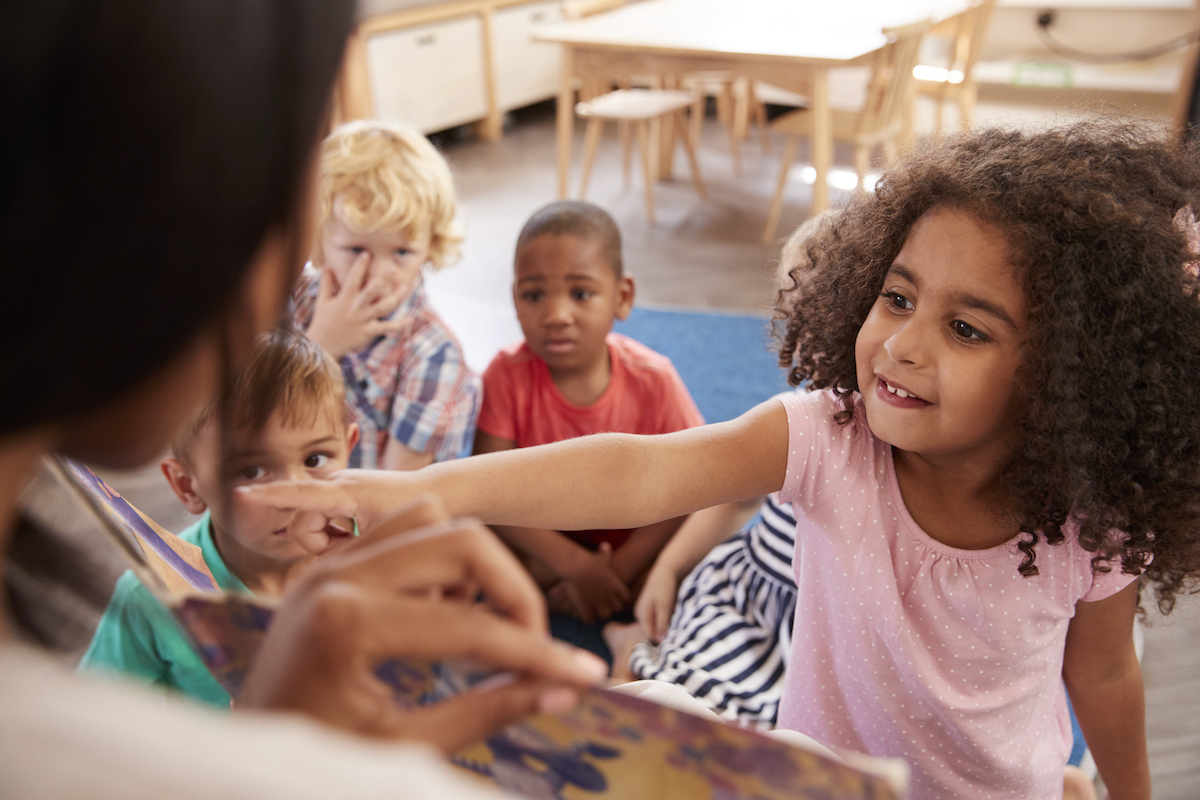
The Founder’s Message
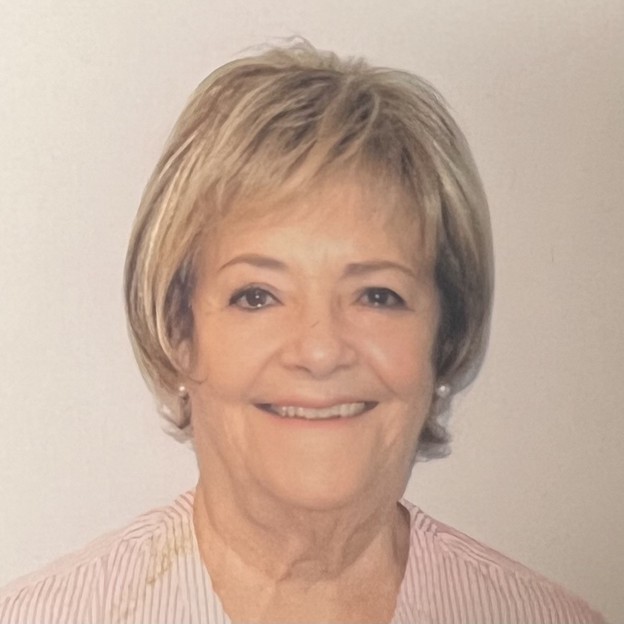
Founder
Kinder Haus Montessori
My first visit to a Montessori class was in Einsiedlerhof, Germany in 1975. As I was observing in the Practical Life room, I watched a three-year old girl fill a glass container with water and carefully carry it across a busy room. As she arrived at her activity, she placed the container gently on the table. The look on her face was awe-inspiring! Joy, pride, and obviously a huge sense of accomplishment filled her.
I was blown away, hooked on learning about Montessori. In that moment, a dream was born, a vision that motivates me yet today—a vision to provide an environment which supports the child to reach their full potential.
Along the way, it became obvious while supporting the child in his or her early years, we had the opportunity to also support the parents. When we support the parents, we support the child for life. Parenting information is provided in the form of articles, workshops, and shared during parent conferences.
“The hand that rocks the cradle rules the world,” is an old saying. But, oh how true! Our teachers spend more waking hours with most of our little friends, than do their parents. Theirs are the hands that cultivate and empower the children. We know, to the core of our being, that this work is crucial in the child’s development of self-worth, confidence in the world, and joy of life. We recognize the opportunity to nurture with every nose we wipe, diaper we change, smile we share, and each hug we give. Every lesson given stimulates the child in ways we cannot imagine or foresee.
Thus, our goal is for every staff member to bring their “A” game daily. Kinder Haus provides on-going professional development opportunities for all staff members, so that through their increased skills, they too are becoming their personal best. KINDER HAUS…creating an environment where children, parents and teachers are supported in reaching their full potential.
Kind regards,
Pat Lacoste
Founder, Kinder Haus Montessori
Our goals at Kinder Haus Montessori include:
Independence – Children will learn to work by themselves without constant adult supervision. Everyday functions like fastening clothes and shoe tying are accomplished.
Concentration – Your child’s attention span will develop, fostering good study habits.
Coordination – Exercises that strengthen your child’s hand for writing and train the eye for reading are provided.
Order – Our environment is based on order. Order leads to logical thinking for future math concepts, problem solving, and decision making.
Socialization – We provide a natural environment encouraging children to meet, interact, and make friends.
Academic Growth – Your child is encouraged to learn to read, write, and form math concepts.
Emotional Stability – Your child will develop a positive self-concept and view of education.
Self-Control – Children develop inner discipline and become responsible for their own actions.
We look forward to sharing more about our programs and helping your child to make a great start in life!
Things that make Kinder Haus special:
Unsurpassed commitment to excellence.
Kinder Haus Montessori Schools are something special. Our Children’s Houses have been supporting children and their families since 1984. We are committed to maintaining beautiful, safe spaces for children to thrive.
Nurturing professionals provide personal attention. We cultivate bonds with our students and their families. Each child is greeted warmly every day and most lessons are given “one-on-one.” We are a FAMILY of families with common goals that empower everyone to provide children with joyful learning experiences.
Every child is treated with respect and dignity.
Kinder Haus has been recognized nationally by Tomorrow’s Child magazine for our PEACE WORK. Role modeling social skills, multicultural education, nature study, and community service projects instill compassion and empathy for all living things on Earth.
Our History
In 1966, Pat Lacoste found her calling. She began her first work in early childhood programs in both the United States and Europe. She gained valuable experience in traditional preschools, childcare centers, and eventually in Montessori environments. She obtained her Montessori diploma in 1976, at St. Nicholas in London.
The insight she gained by working in such diverse programs led her to fulfill her dream of creating a place where children are nurtured, stimulated, and respected. Thus, Kinder Haus Montessori School was built in 1984.
Our Metairie school is a model facility, toured and used as a training site for hundreds of professional Montessori and traditional teachers over the years. A forerunner in its field, Kinder Haus was one of the first schools in the United States to provide full-time, year round care within a Montessori “children’s house.” Again, ahead of its time, programs for children 12 months through 3 years were included as regular programs. We remain one of the few schools with Montessori programs that are designed to meet the needs of working parents.
Encouraged by parents transferring to the Northshore of Lake Pontchartrain, a second campus was established in 1996, under the enthusiastic leadership of Michelle O’Brien.
Eager to share her knowledge with other educators, Pat became a state certified trainer for Unlimited Potential Incorporated. Touring throughout Louisiana, she took part in training hundreds of childcare workers and directors from licensed centers.
Other honors include representing the United States as a member of the People to People Delegation sent to China in 1991. She was also invited to represent the Louisiana Child Care Owners Association at the White House. Pat accepted a nomination to sit on the East Jefferson Hospital Advisory Board for Women and Child Services and previously held the position of state liaison for the National Association of Child Care Professionals.
She has been an active participant in many professional organizations including the State and National Association of Education of Young Children, the American Montessori Society, American Montessori International, Louisiana Child Care Council, Louisiana Professional Association for Child Care, and Louisiana Association for Children Under Six.
Her passion for improving the quality of care for children has been an inspiration for many teachers. Her endless commitment to excellence continues to touch the lives of children, parents, and teachers everyday.
Benefits of Montessori
Montessori education is a unique approach to learning that is simultaneously embraced and misunderstood by many. I would like to mention a few of the benefits that await students in a Montessori program.
Various research studies have been done comparing a Montessori education to traditional school education. One such study, in an issue of the Journal of Science states, “This study supports the hypothesis that Montessori education has a positive long-term impact. A significant finding in this study is the association between a Montessori education and superior performance on the math and science scales of the ACT and WKCE. Montessori students prove to be significantly better prepared for elementary school in reading and math skills than the non-Montessori children. They also tested better on ‘executive function,’ the ability to adapt to changing and more complex problems, an indicator of future school and life success. Additionally, they displayed better abilities on the social and behavioral tests, demonstrating a greater sense of justice and fairness.” There are many such studies you could google and read.
The benefits of a Montessori education are numerous. The teaching methods focus on work that helps develop a child’s ability to concentrate, be self-motivated, self-directed, self-confident, as well as to appreciate order. At an early age the children are taught to be independent. They learn to care for their own needs by pouring their own juice, helping to prepare and serve snacks to friends, and taking are of the environment. This fosters their natural desire to be independent and self-confident. They take pride in their ability to do things on their own. Montessori classes encourage children to explore their environment and allows them the freedom to make choices. It’s also stimulating and child oriented, a place they can learn and explore without fear. Freedom within a structured environment helps develop a sense of order and purpose, which increases critical thinking skills, decision making, understanding of natural consequences, and encourages creativity.
Montessori teachers know and understand that each child is unique and endowed with great potential. Children are respected and not made to fit in a “box.” Instead, individual attention is given to each child. They are guided and supported in a nurturing environment that helps to develop the whole child socially, emotionally, physically, and intellectually. Children excel when they know their teachers believe in them and support their abilities.
Mixed-age classes allow older children to develop leadership skills and patience, as well as reinforce their knowledge and skills while helping the younger students. In return, the younger children love the attention of the older students. They have the benefit of having a model of correct behavior and work habits and are motivated by seeing the more complicated works of the older students.
Children blossom when they are respected and given the freedom to work with materials that fully engage their interests. A Montessori class is calm, peaceful, interesting, and nurturing, which facilitates learning.
To list just a few of the results of a Montessori education:
✅ responsible
✅ independent
✅ confident
✅ focused
✅ respectful
✅ compassionate
✅ creative
✅ self-directed and self-motivated
✅ intelligent individuals with wonderful work ethics who are reaching their full potential.
Montessori History
“Scientific observation has established that education is not what the teacher gives; education is a natural process spontaneously carried out by the human individual, and is acquired not by listening to words but by experiences upon the environment. The task of the teacher becomes that of preparing a series of motives of cultural activity, spread over a specially prepared environment, and then refraining from obtrusive interference. Human teachers can only help the great work that is being done. Doing so, they will be witnesses to the unfolding of the human soul and to the rising of a New Man who will not be a victim of events, but will have the clarity of vision to direct and shape the future of human society.” – Maria Montessori, Education for a New World
Maria Montessori, born in 1870, was the first woman in Italy to receive a medical degree. She worked in the fields of psychiatry, education and anthropology. She believed that each child is born with a unique potential to be revealed, rather than as a “blank slate” waiting to be written upon. Her main contributions to the work of those of us raising and educating children are in these areas:
Preparing the most natural and life supporting environment for the child.
Observing the child living freely in this environment.
Continually adapting the environment in order that the child may fulfill his greatest potential — physically, mentally, emotionally, and spiritually.
At age thirteen, against the wishes of her father but with the support of her mother, she began to attend a boys’ technical school. After seven years of engineering she began premed and, in 1896 became a physician. In her work at the University of Rome psychiatric clinic Dr. Montessori developed an interest in the treatment of special needs children and, for several years, she worked, wrote, and spoke on their behalf.
In 1907 she was given the opportunity to study “normal” children, taking charge of fifty poor children of the dirty, desolate streets of the San Lorenzo slum on the outskirts of Rome. The news of the unprecedented success of her work in this Casa dei Bambini “House of Children” soon spread around the world, people coming from far and wide to see the children for themselves. Dr. Montessori was as astonished as anyone at the realized potential of these children:
“Supposing I said there was a planet without schools or teachers, study was unknown, and yet the inhabitants – doing nothing but living and walking about – came to know all things, to carry in their minds the whole of learning: would you not think I was romancing? Well, just this, which seems so fanciful as to be nothing but the invention of a fertile imagination, is a reality. It is the child’s way of learning. This is the path he follows. He learns everything without knowing he is learning it, and in doing so passes little from the unconscious to the conscious, treading always in the paths of joy and love.”
From Europe to the United States. Invited to the USA by Alexander Graham Bell, Thomas Edison, and others, Dr. Montessori spoke at Carnegie Hall in 1915. She was invited to set up a classroom at the Panama-Pacific Exposition in San Francisco, where spectators watched twenty-one children, all new to this Montessori method, behind a glass wall for four months. The only two gold medals awarded for education went to this class, and the education of young children was altered forever.
India and the Nobel Peace Prize. During World War II Dr. Montessori was forced into exile from Italy because of her antifascist views and lived and worked in India. It was here that she developed her work Education for Peace, and developed many of the ideas taught in her training courses today. She was twice nominated for the Nobel Peace Prize.
The Montessori Assistants to Infancy Program. In the 1940’s, inspired by the amazing potential of children realized in the early years, Dr. Montessori stated that age three was too late to begin to support the work and development of children. In 1947 the Montessori Assistants to Infancy program was begun in Rome. This was a 3-year, full-time program which is still taught today in several countries.
The potential of the child is not just mental, but is revealed only when the complete “Montessori Method” is understood and followed. The child’s choice, practical work, care of others and the environment, and above all the high levels of concentration reached when work is respected and not interrupted, reveal a human being that is superior not only academically, but emotionally and spiritually, a child who cares deeply about other people and the world, and who works to discover a unique and individual way to contribute. This is the essence of real “Montessori” work today.
Teachers and Staff

Patricia Lacoste
Founder

Amber N.
Office Administrator
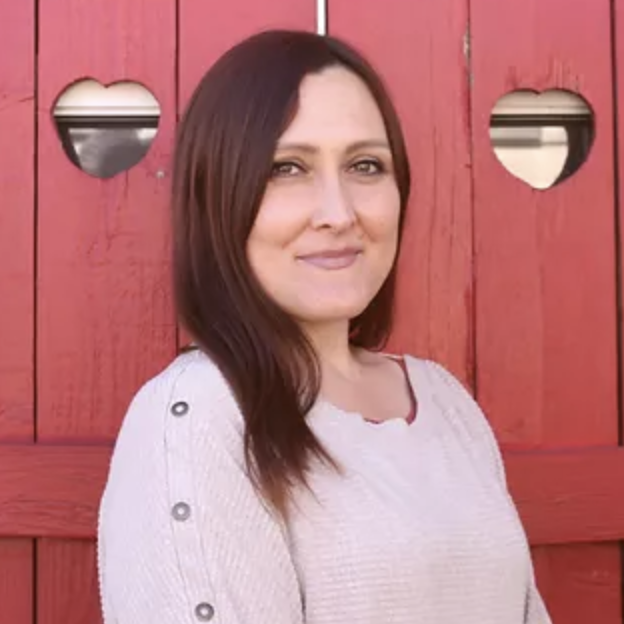
Michele T.
Toddler Lead Teacher
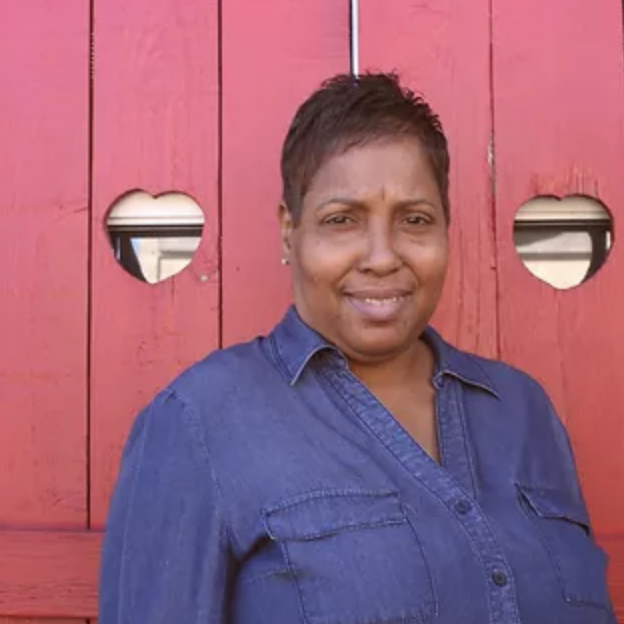
Tamarra J.
Preschool Co-Lead Teacher Class
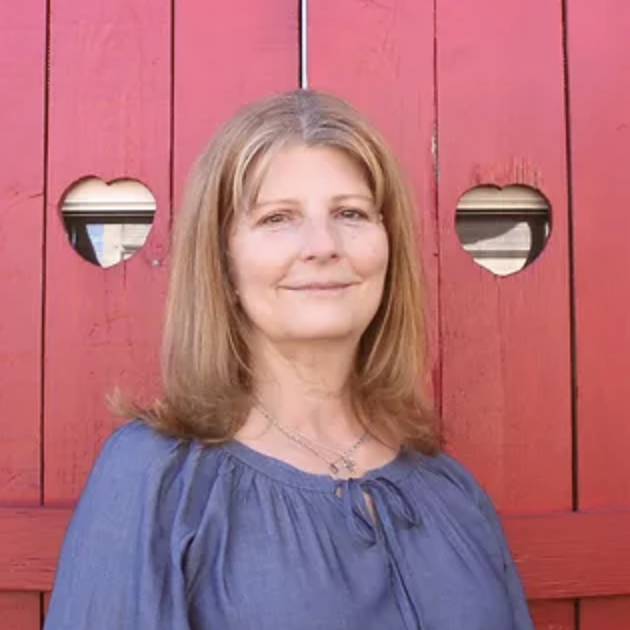
Bonnie T.
Preschool Co-Lead Teacher Class
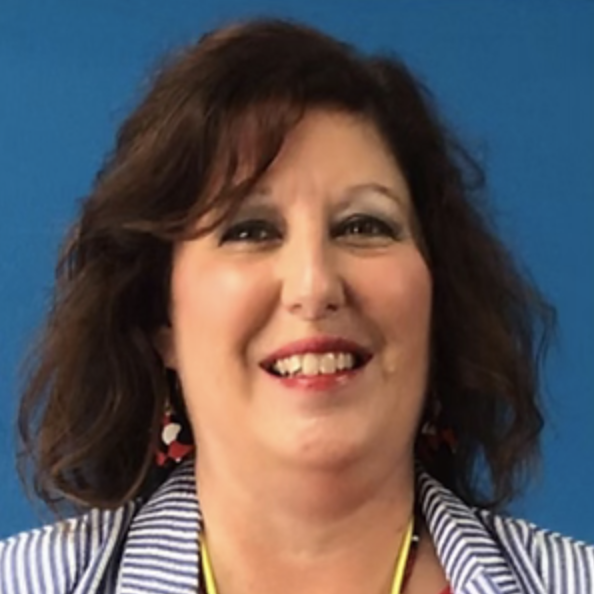
Danielle S.
Pre-K/Kindergarten Lead Teacher

Jo M.
PreK Assistant
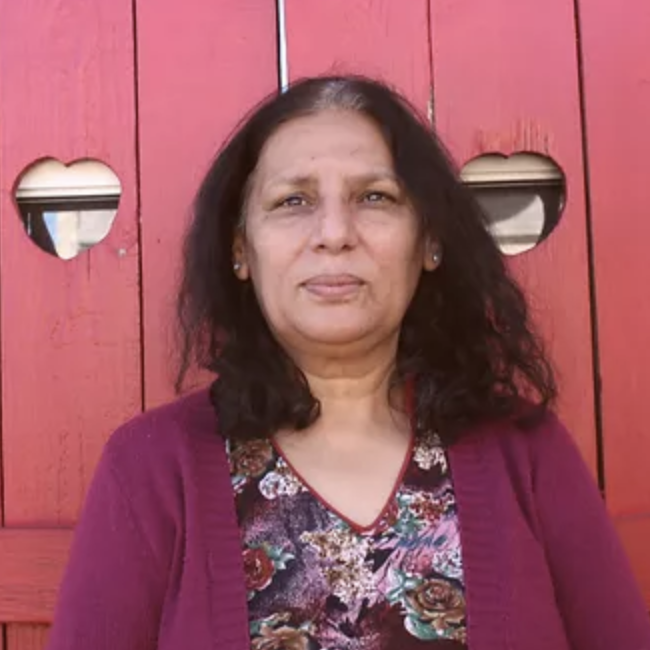
Sarah K.
Substitute Teacher

